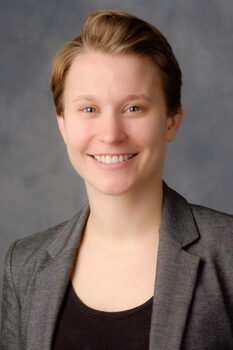NSF funding helps WFU develop diverse, competitive STEM workforce

Wake Forest University is part of a new National Science Foundation (NSF) funded alliance that will help historically underrepresented minorities work toward careers in science, technology, engineering and mathematics (STEM).
Wake Forest will partner with Vanderbilt University and Fisk University in the NSF’s Alliances for Graduate Education and the Professoriate program (AGEP) for the “Transformation Alliance: Bridging the PhD to Postdoc to Faculty Transitions for Women of Color in STEM.”
The three universities will collaborate to develop, study and refine a model to address the critical underrepresentation of women of color in STEM and STEM education research careers to help them from doctoral degree attainment to postdoctoral fellowship to tenured track positions in STEM.
The NSF announced $5.9 million in funding for three new alliances consisting of 14 partner universities as part of its AGEP program. Each award is for five years and will support the alliances as they develop, reproduce, implement and study models that can transform pathways for historically underrepresented minorities to careers as professors in science, technology, engineering and mathematics (STEM).

Sarah Kugler
The work at Wake Forest, supported by $97,219, will be done through the Anna Julia Cooper Center (AJCC), an interdisciplinary center with a mission of advancing justice through intersectional scholarship. Sara Kugler, director of external partnerships & initiatives for AJCC, will serve as the lead administrator. She also coordinates the Collaborative to Advance Equity Through Research, a national coalition of institutions committed to supporting and advancing research addressing the lives of women and girls of color.
“By sharing promising practices and insights that emerge from this bridge model with academic institutions in the Collaborative to Advance Equity Through Research, we will advance knowledge about pathways to career success for women of color in STEM fields,” Kugler said. “We will disseminate information about a replicable model that other universities can learn from, engage with, and reproduce to support the participation and advancement of women of color in the STEM academy.”
Recent NSF data indicate that underrepresented minority STEM associate and full professors occupy only 8 percent of senior faculty positions at U.S. four-year colleges and universities. AGEP focuses on broadening participation in the academic workforce by advancing knowledge about the underlying issues, policies and practices affecting the participation, transitions and advancement of underrepresented minorities in the STEM academy.
“Decades of federal, state, philanthropic and university funding have increased the pool of underrepresented minority students completing STEM doctoral degrees,” said Joan Ferrini Mundy, NSF assistant director for education and human resources.
Research conducted by these projects will help universities address the currently difficult to navigate transitions that minority STEM students and postdoctoral fellows experience as they progress towards joining the professoriate, the NSF said. As part of building a diverse, globally competitive STEM workforce, America’s universities and colleges need a diverse faculty that can educate the next generation.
Categories: Research & Discovery, University Announcements
Wake Forest News
336.758.5237
media@wfu.edu
Meet the News Team
Wake Forest in the News
Wake Forest regularly appears in media outlets around the world.




